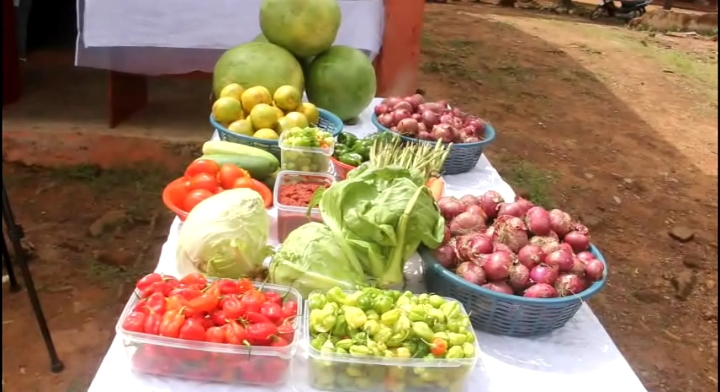A Deputy Chief Nutrition Officer at the Ghana Health Service, Veronica Quartey, has indicated that over 40 percent of women of reproductive age across the country suffer from iron deficiency anemia.
Iron-deficiency anemia is a blood disorder that affects the red blood cells. It is very common, especially among women and in people who have a diet that is low in iron.
She said the situation is higher in young adolescents.
Madam Quartey said this when she spoke about the micro-nutrient situation in the country at a cooking demonstration organised by the World Food Program (WFP) for caterers under the school feeding programme for matrons of Senior High Schools in the Tolon District of the Northern Region.
The programme by the WFP with support from the Rockefeller Foundation is a two and a half year programme to help promote the use of healthier nutritious food in schools using local foods such as parboiled rice among other grains, vegetables, fruits and cereals to ensure the students obtain the maximum nutritional benefits.
The project, which is being piloted is being implemented in 12 schools in five districts across the country.

Speaking on the sidelines of the training, Madam Quartey said that 59 percent of pregnant women lack folic acid.
She said the situation is worse in children, especially those under school-going age.
The Deputy Chief Nutrition Officer added that about 20 percent of children have Vitamin A deficiency, adding the situation is higher in the Northern region.
“Iron, which manifests in the form of anemia is still very high. For instance more than 40 percent of women in reproductive age 15 to 49 years have iron deficiency anemia,” she said.

Programme Policy Officer of the World Food Programme, Emma Anaman said the training was to showcase the importance of parboiled unpolished rice for students.
She said studies have shown how parboiled unpolished rice has nutritional value that would promote healthy growth and brain development for the students.
Ms Anaman added that the programme is generally aimed at improving nutrition in school menus.
“Today’s programme is part of a series of programmes lined up as part of the project to improve school menus,” she said.
She said statistics on health and nutrition in the Northern Region shows the area is not doing too well, adding that they believe the programme will have a significant impact.

She said over the years programmes on nutrition have largely been spearheaded externally, but this time around they will consider home-grown solutions.
”This time, we are looking at internal home-grown solutions and we are looking at our own parboiled unpolished rice which is grown by our own local farmers, processed by our own local processes and which we believe if we use to feed to the children in the primary and senior high schools, they will get optimum nutrition,”Ms Anaman added.
Another Policy Officer, Hikimatu Tuntei-ya Mohammed said a baseline survey will be taken on the vital statistics of some of the students before the beginning of the project and at the final stage to ascertain the impact of the project.

”We will run a baseline survey, which will be done in all the schools where they are going to administer questionnaires to students. They will take their nutritional status that’s their weight and height and other nutritional indicators so that at the end of the project another statistics will be taken again to see the improvement,” she said.
The Director of School Health Education Programme, Theresa Oppong Mensah said the GSE has the capacity to sustain the project after its initial implementation.
She said they currently have structures in existence and would work with these structures to continue the implementation of the programme.
Latest Stories
-
Burnley score late to draw with Manchester United at Old Trafford
33 mins -
Bayer Leverkusen extend unbeaten run to 46 games after draw with Stuttgart
37 mins -
Chelsea come from two goals down to draw against Aston Villa
41 mins -
Andre Ayew scores in Le Havre’s 3-3 draw with PSG
51 mins -
GPL 2023/24: Kotoko draw with Medeama; Samartex go 7 points clear of Nations FC
1 hour -
Mahama cuts sod for construction of new multipurpose Jakpa palace in Damongo
1 hour -
NSS management assists Papao fire victims
2 hours -
EXPLAINER: Will dumsor end soon?
2 hours -
IMANI Africa takes on EC, accuses it of lying and publishing half truths
3 hours -
Manasseh Azure calls for investigation and prosecution of those responsible for GRA/SML contract
3 hours -
Kwesi Atuahene: Ghana’s health capital depends on HealthTech – Africa Center for Digital Transformation
4 hours -
13 signs your wife is planning on leaving you and you have no idea
4 hours -
IMANI Africa: Ghana’s EC’s dangerous and pathological conduct
4 hours -
If I speak there will be fire – Salah on Klopp row
5 hours -
Grieving after divorce is normal, but this particular kind of grief isn’t
5 hours

